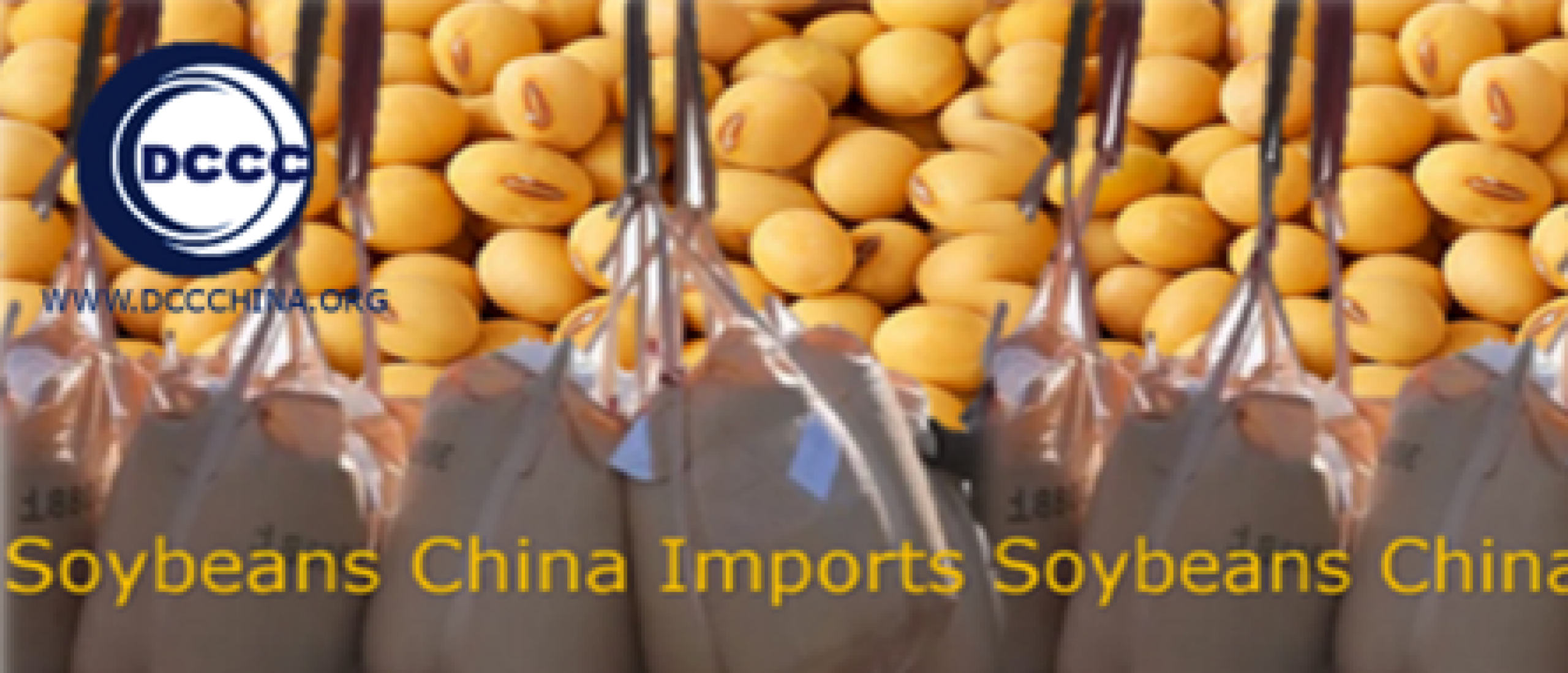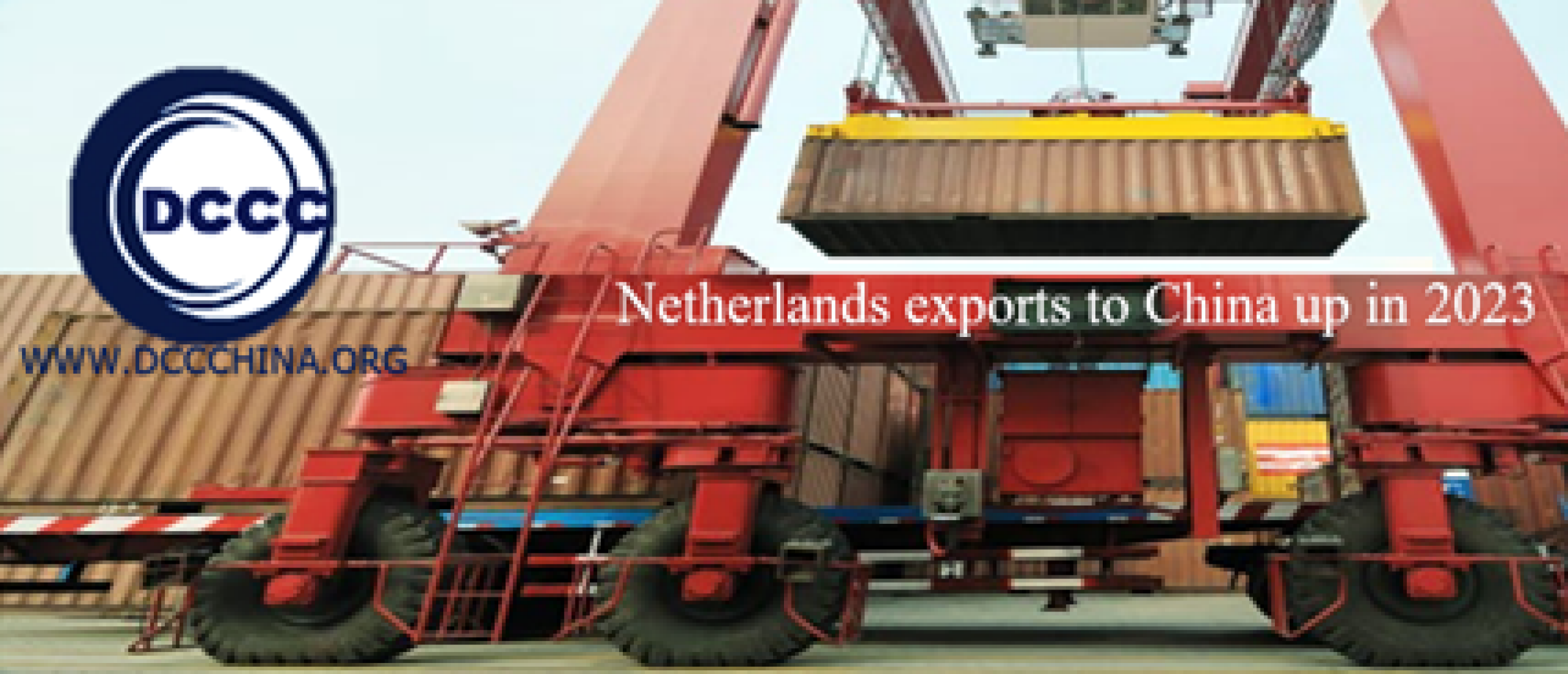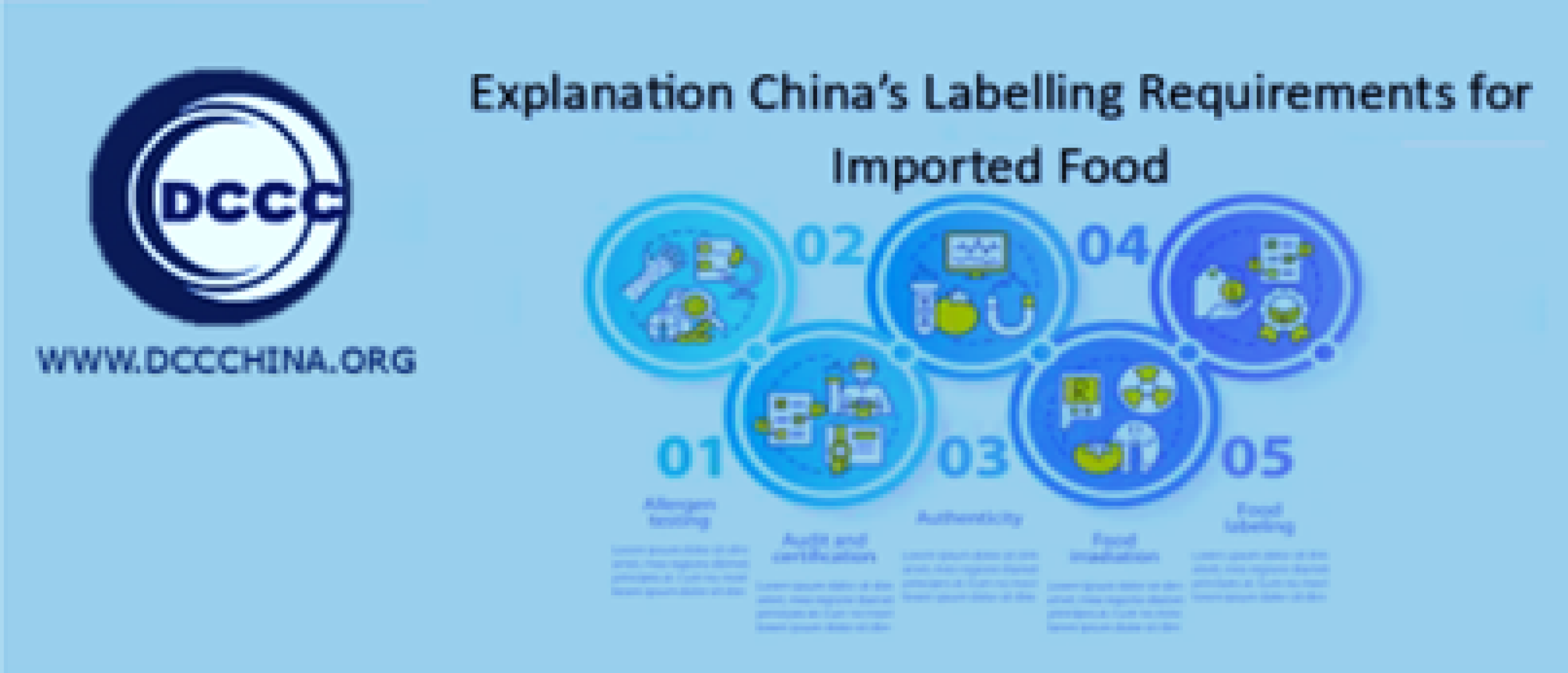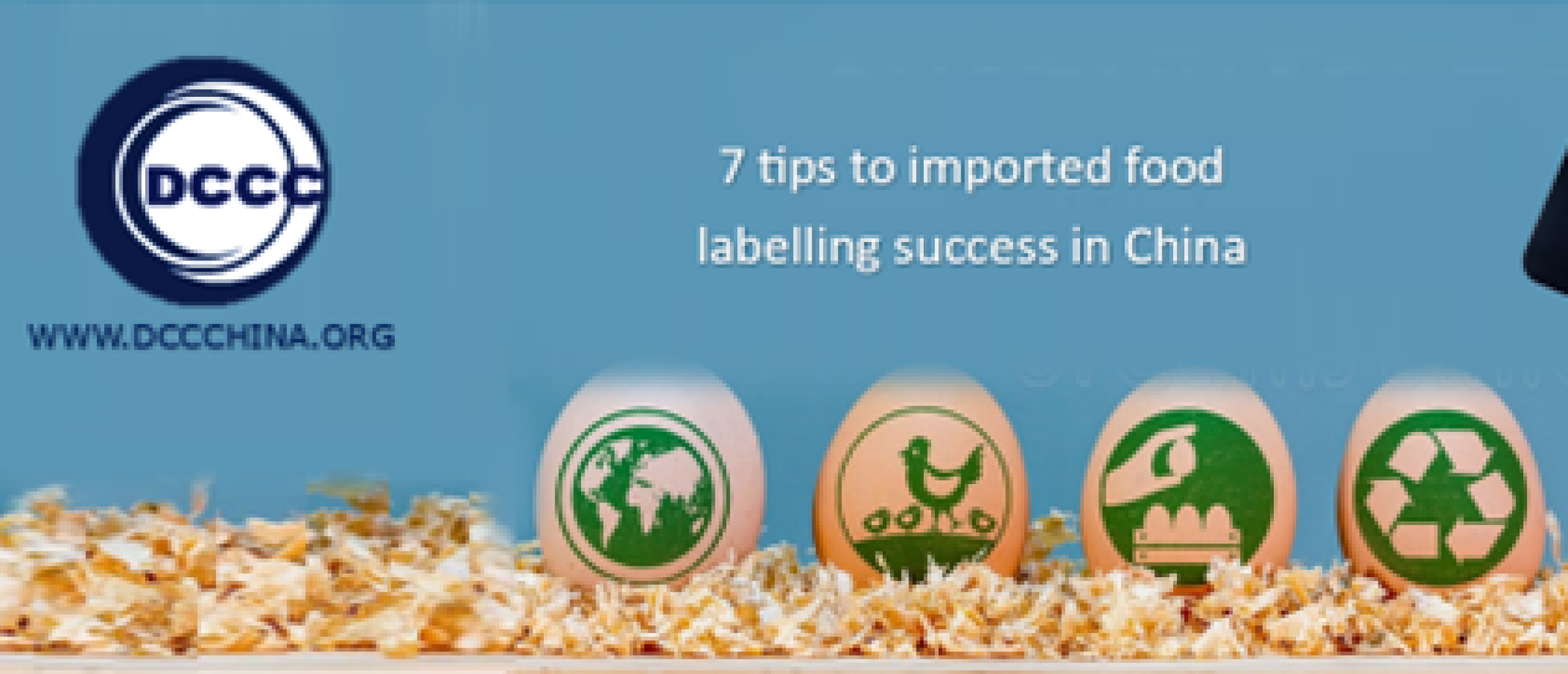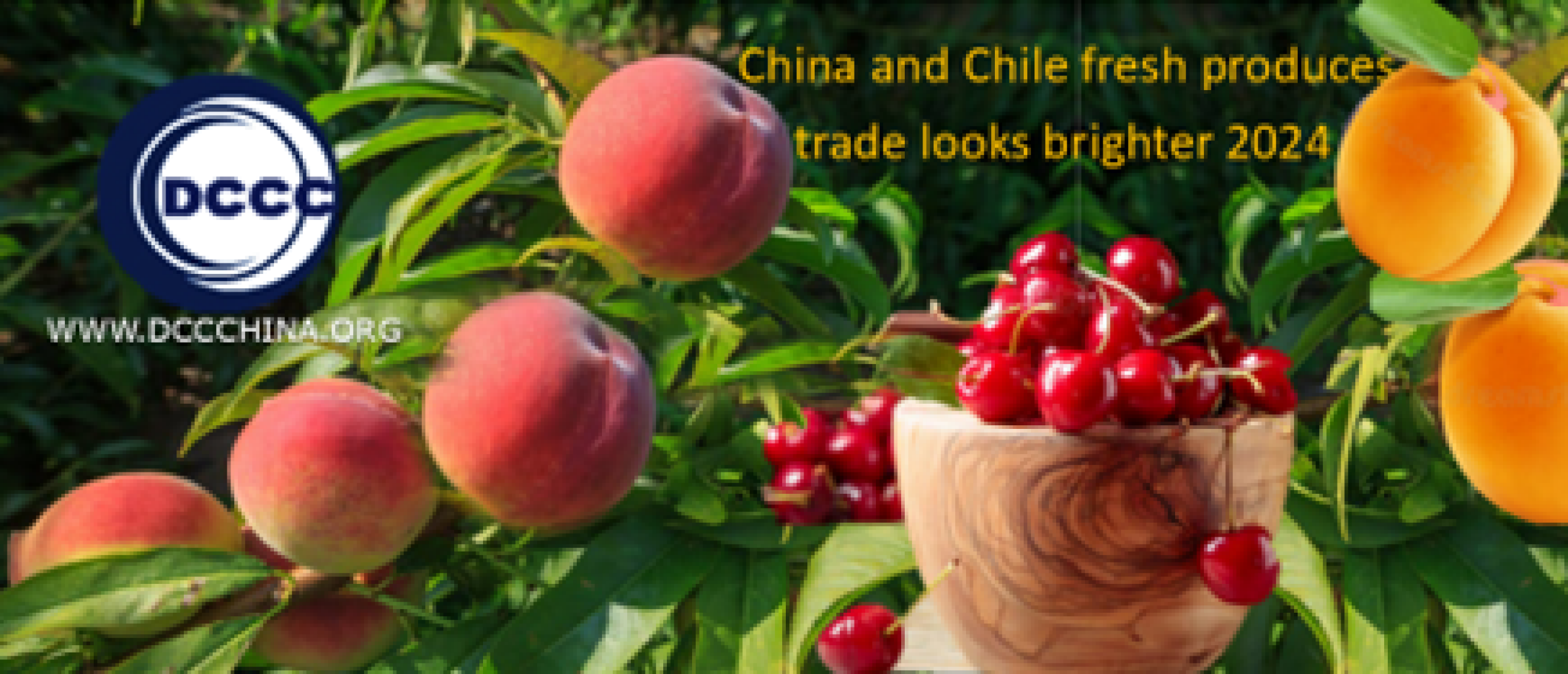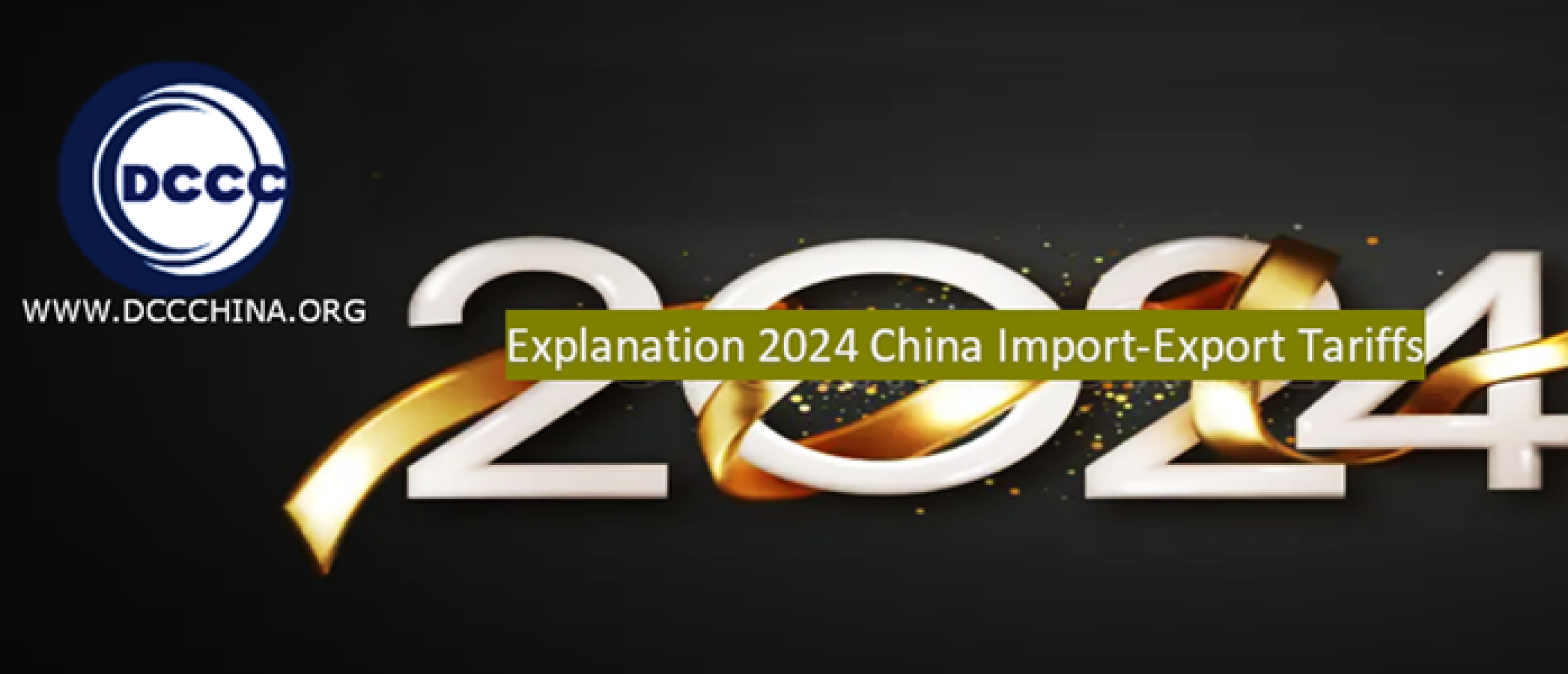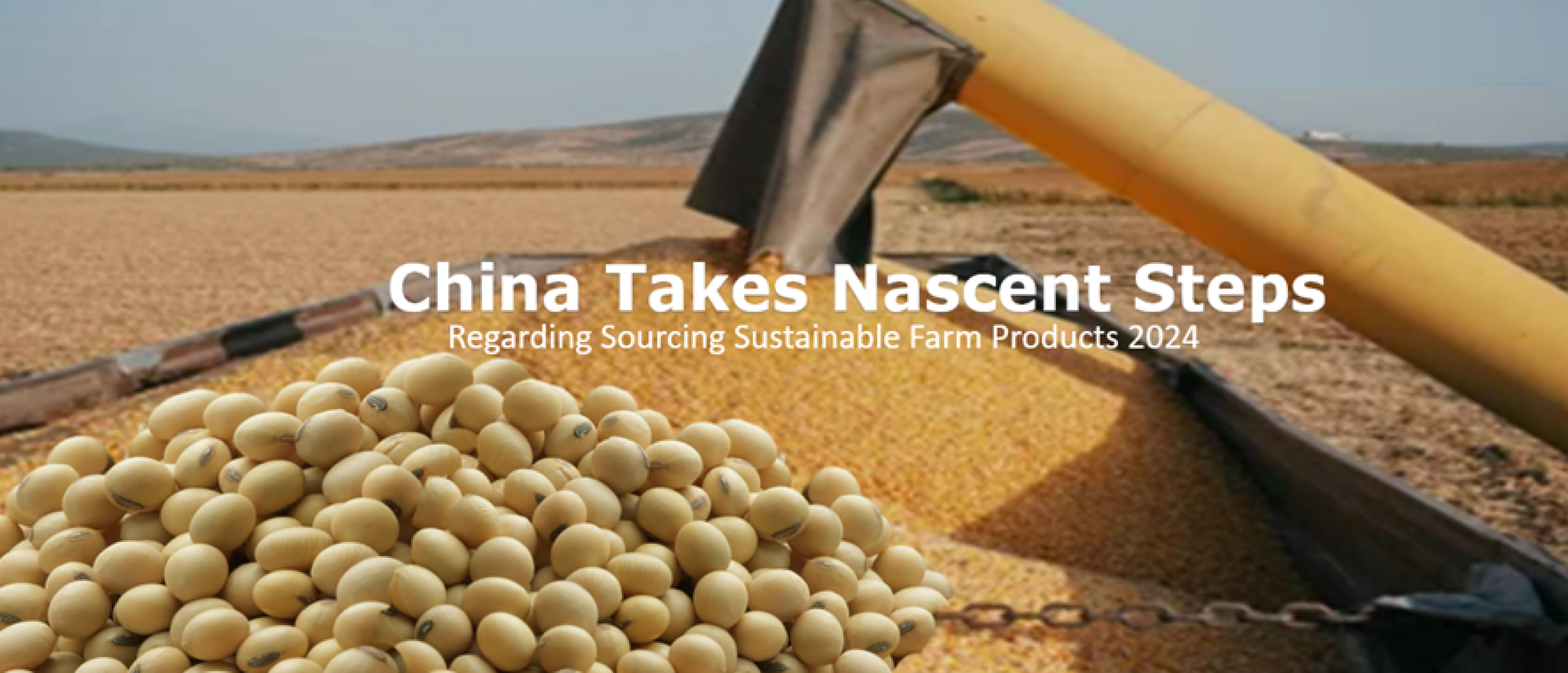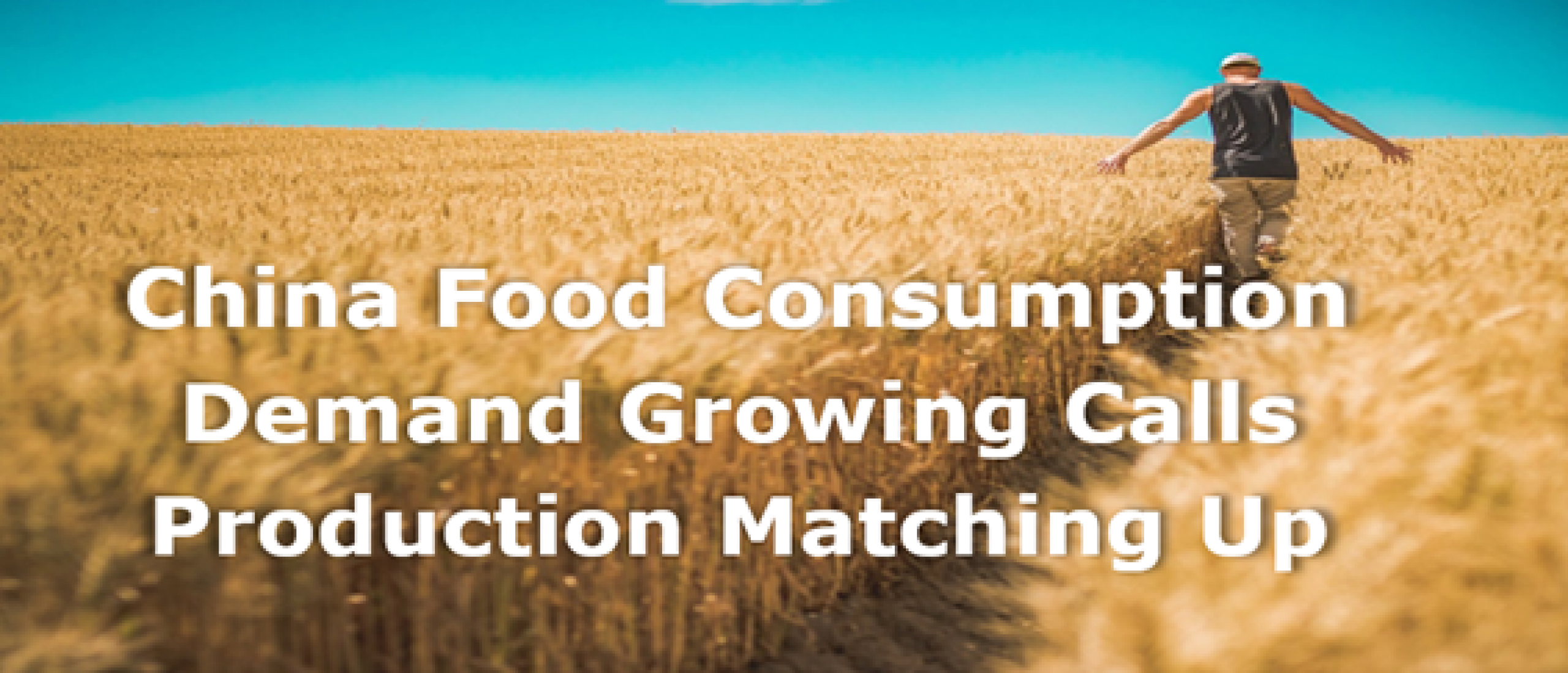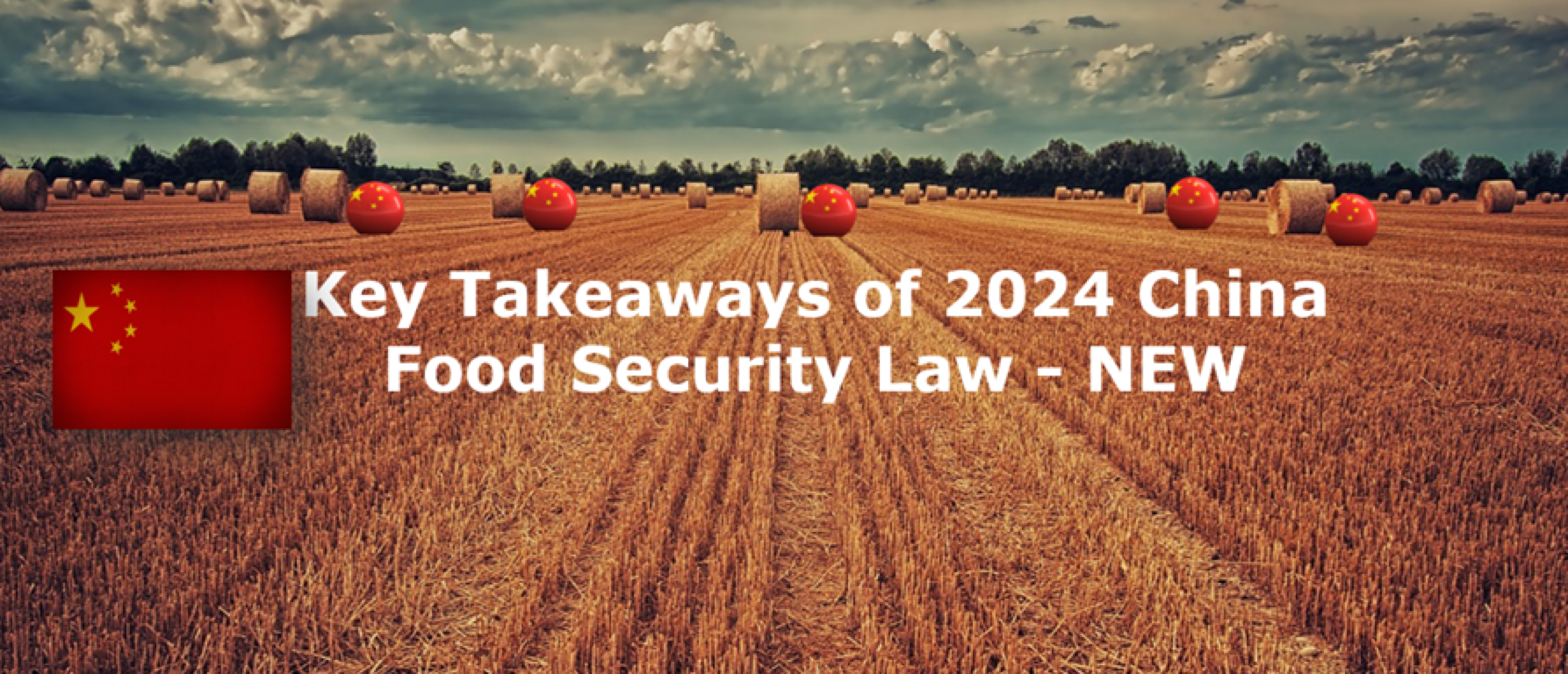
Key takeaways of 2024 China food security law - NEW
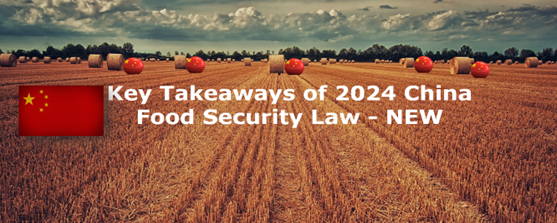 The central theme of 2024 China food security law is to achieve “absolute self-sufficiency" in staple grains, put down the amount of dependency overseas purchases. From central to local government, to agricultural industry take on more responsibilities toward achieving “absolute self-sufficiency", to raise food production. Look at this recent reporting from World Grain
The central theme of 2024 China food security law is to achieve “absolute self-sufficiency" in staple grains, put down the amount of dependency overseas purchases. From central to local government, to agricultural industry take on more responsibilities toward achieving “absolute self-sufficiency", to raise food production. Look at this recent reporting from World Grain
The law provides a legal framework for existing guidance by the Communist Party for local governments and the agricultural industry to raise food production, although it did not give details on how the law will be implemented. It includes protection of farmland from being converted to other uses, protecting germplasm resources and preventing wastage.
Passed just six months after its first reading, the rush to adopt the food security law reflects China's urgency to resolve issues that have curbed production, such as a lack of arable land and water resources, labor shortages and a lack of agriculture technology.
The law holds central and provincial governments accountable for incorporating food security into their economic and development plans, ensuring that food supply remains a top priority in the country that has a painful history of famine.
The party will lead the implementation of a national food security strategy "that puts China first" by importing moderately and using advances in science and technology to boost production, according to a provision in the law.
"It shall adhere to the principle of storing grain in the ground and using technology to improve grain production," it said, to ensure "basic self-sufficiency in cereal grains and absolute self-sufficiency in staple grains for food use."
It also stipulates the formation of a national grain emergency plan and a food security monitoring system.
China expanded the definition of "coarse grains" to include millets and oats, in addition to sorghum, barley, buckwheat, mung beans and potatoes. Grains refers to wheat, rice, corn, soybeans and coarse grains. The law also said China will "strengthen international food security cooperation and allow international grain trade to play its role." It did not give details...…See more from world grain here
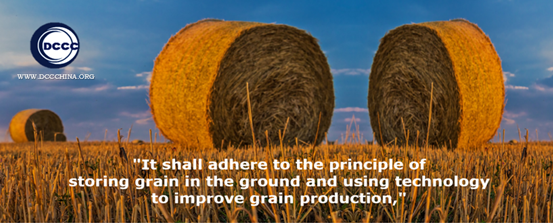
Key takeaways of 2024 China's food security law
Began taking effect on Saturday, 1 June 2024; Intended to ensure the supply of grain and related products.
From central to local authorities, including agricultural sector at all levels do take its responsibilities to ensure “absolute self-sufficiency".
The level of alter is clearer from “basic self-sufficiency” in the past years, till today in 2024, it heightened to “absolute self-sufficiency” in grains and absolute security of staple foods.
In addition, China must ensure the supply of other critical food products including meat, milk, sugar, and oil.
With climate change and a dependence on imports that pose challenges to China food supply. 2024 China's food security law (NEW) explained in higher level toward archiving “absolute self-sufficiency" in grains and staple foods.
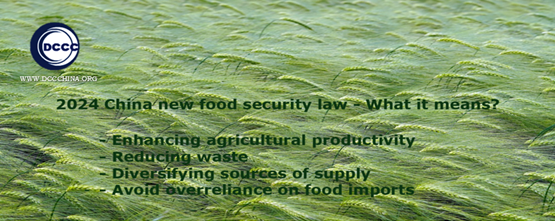
What it means for global suppliers of agricultural products to China?
China is one of the largest and fastest-growing agricultural markets in the world. With a population of over 1.4 billion people and a rapidly expanding middle class, the demand for food and agricultural products in China is on the rise. This presents challenges and unique opportunities for producers and suppliers to tap into this lucrative market and expand their business.
The Chinese agricultural market is diverse and varied, with a wide range of products being imported from around the world. From fresh fruits and vegetables to meat and dairy products, there is a growing demand for high-quality agricultural products in China. Suppliers who can provide products that meet the strict quality standards and regulations of the Chinese market stand to benefit from this growing demand.
One of the key factors to consider when exporting to China is to understanding the market and regulations, suppliers should also be aware of the competitive landscape in China. With a growing number of domestic and international suppliers vying for market share,
it is important for suppliers to differentiate themselves and offer unique value propositions to Chinese consumers. This may include highlighting the quality, safety, and sustainability of their products, as well as offering competitive pricing and excellent customer service.
Overall, the Chinese agricultural market presents a wealth of opportunities for small and medium-sized suppliers looking to expand their business. By understanding the market, regulations, and competitive landscape, suppliers can position themselves for success and tap into the growing demand for high-quality agricultural products in China. With the right strategies and partnerships in place, exporting to China can be a profitable venture for small agricultural suppliers.
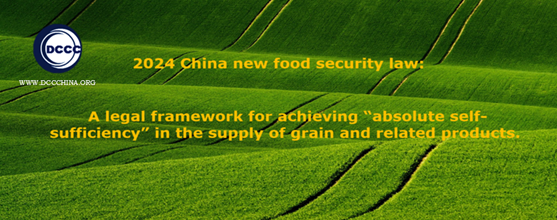
What your should know exporting agricultural products to China?
When it comes to exporting agricultural products to China, understanding the import regulations and requirements is crucial for small and medium-sized suppliers. China has strict regulations in place to ensure the safety and quality of imported goods, so it is essential to be well-informed before entering the market. In this subchapter, we will discuss some of the key regulations and requirements that suppliers need to be aware of when exporting to China.
One of the first things to consider when exporting agricultural products to China is the registration process. In order to import goods into China, suppliers must register with the General Administration of Customs (GAC). This process can be complex and time-consuming, so it is important to start early and work with a knowledgeable partner who can help navigate the registration requirements.
In addition to registration, suppliers must also ensure that their products meet Chinese food safety standards. China has strict regulations in place to protect consumers from unsafe or contaminated food products. Suppliers must ensure that their products meet these standards before they can be imported into the country. This may involve obtaining certifications or undergoing testing to demonstrate compliance with Chinese regulations.
Another important consideration when exporting agricultural products to China is labeling requirements. Chinese regulations require that all imported goods be labeled in Chinese, including information such as the product name, ingredients, and expiration date. Suppliers must ensure that their products are properly labeled before they can be imported into China to avoid any delays or rejections at the border.
Finally, suppliers must also be aware of any import tariffs or duties that may apply to their products. China imposes tariffs on certain goods, including agricultural products, which can impact the cost of importing goods into the country. Suppliers should be aware of these tariffs and factor them into their pricing strategy when exporting to China.
Overall, understanding the import regulations and requirements in China is essential for small and medium-sized suppliers looking to export agricultural products to the Chinese market. By being aware of registration processes, food safety standards, labeling requirements, and import tariffs, suppliers can navigate the complex regulatory landscape in China and ensure a successful entry into this lucrative market.

